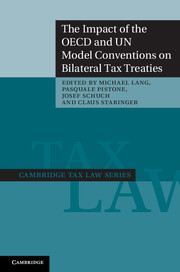Book contents
- Frontmatter
- Contents
- Contributors
- Preface
- Table of cases
- Table of statutes
- General report
- 1 Argentina
- 2 Australia
- 3 Austria
- 4 Belgium
- 5 Brazil
- 6 Canada
- 7 Chile
- 8 China
- 9 Colombia
- 10 Croatia
- 11 The Czech Republic
- 12 Estonia
- 13 Finland
- 14 France
- 15 Germany
- 16 Hong Kong
- 17 Hungary
- 18 India
- 19 Italy
- 20 Lebanon
- 21 Liechtenstein
- 22 The Netherlands
- 23 New Zealand
- 24 Norway
- 25 Peru
- 26 Poland
- 27 Portugal
- 28 Romania
- 29 The Russian Federation
- 30 Serbia
- 31 Slovakia
- 32 Slovenia
- 33 Spain
- 34 Sweden
- 35 Uganda
- 36 The UK
- 37 The USA
- Index
- References
22 - The Netherlands
Published online by Cambridge University Press: 05 November 2014
- Frontmatter
- Contents
- Contributors
- Preface
- Table of cases
- Table of statutes
- General report
- 1 Argentina
- 2 Australia
- 3 Austria
- 4 Belgium
- 5 Brazil
- 6 Canada
- 7 Chile
- 8 China
- 9 Colombia
- 10 Croatia
- 11 The Czech Republic
- 12 Estonia
- 13 Finland
- 14 France
- 15 Germany
- 16 Hong Kong
- 17 Hungary
- 18 India
- 19 Italy
- 20 Lebanon
- 21 Liechtenstein
- 22 The Netherlands
- 23 New Zealand
- 24 Norway
- 25 Peru
- 26 Poland
- 27 Portugal
- 28 Romania
- 29 The Russian Federation
- 30 Serbia
- 31 Slovakia
- 32 Slovenia
- 33 Spain
- 34 Sweden
- 35 Uganda
- 36 The UK
- 37 The USA
- Index
- References
Summary
The relevance of the OECD and UN Model Conventions and their Commentaries for the interpretation of Dutch tax treaties
Introduction
In August 2010 eighty-eight treaties concluded by the Netherlands concerning income (and capital) were in force. Most treaties concluded by the Netherlands in the period after the Second World War generally resemble the League of Nations London Model Convention or used the ideas behind this treaty for the allocation of income. In most aspects, treaties concluded by the Netherlands in the 1960s, the 1970s and the early 1980s with OECD Member countries often resemble the 1963 and later the 1977 version of the OECD Model Tax Convention on Income and on Capital (OECD Model), although specific articles occur which are due to specific relations between the Netherlands and the other contracting state. Tax treaties with developing countries generally resemble the United Nations Model Double Taxation Convention between Developed and Developing Countries (UN Model) both in structure and in content.
In 1987 the Netherlands published a Standard Tax Treaty (Netherlands Standard Treaty). Most treaties concluded from the mid-1980s up to the late 1990s resemble the Netherlands Standard Treaty, which to a great extent resembles the OECD Model, but which contains some important additional provisions: 1. a turnkey provision; 2. a cost-sharing provision; 3. a provision concerning the deductibility of donations to a pension fund; 4. rules concerning offshore activities; 5. rules concerning the redemption of pensions and life insurance policies; 6. a zero per cent rate for participation dividends and interest; 7. a provision allowing the Netherlands to levy under its own law an exit tax on gains from the alienation of shares or ‘jouissance’ rights in a company, the capital of which is wholly or partly divided into shares and which under the laws of the Netherlands is a resident of the Netherlands, in the course of (in older treaties) the last five or (in newer treaties) ten years preceding the alienation of the shares or ‘jouissance’ rights; 8. a provision making arbitration possible; and 9. a provision concerning the recovery of taxes. Generally such recovery provisions deviate considerably from the OECD Model.
- Type
- Chapter
- Information
- Publisher: Cambridge University PressPrint publication year: 2012

